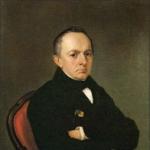fall into despair
fall into despair
fall into despair, howl, tear your robes, despair, hands dropped
Dictionary of Russian synonyms.
See what "fall into despair" is in other dictionaries:
DESPAIR, despair, pl. no, cf. (book). A state of extreme hopelessness, discouragement due to grief, trouble. "Despair took over me." Pushkin. "I hope to touch him with my tears and despair." Pushkin. “It was a moment of insane despair… Dictionary Ushakov
fall into- fall /, fall; fell, la, lo; sunken / fallen; St. see also fall into, fall into 1) Become sunken. Cheeks sunken. The chest collapsed. 2) what to dive into what l. condition, position (usually difficult, difficult) ... Dictionary of many expressions
I will fall, you will fall; past fell, la, lo; incl. past sunken; owls. (non-nev. to fall). 1. Fall in, go inside. What a change! She and not her. Her features, but she is pale, her eyes seem to have fallen a little. I. Goncharov, Oblomov. His face is haggard, his cheeks are sunken... Small Academic Dictionary
To fall, to fall, to fall. Synonyms can also develop completely synonymous, phraseologically related meanings. A striking example of the verbs to fall into and tumble. The verb to fall into one of its meanings is phraseologically connected, synonymous with ... ... History of words
FALL, fall, fall, prosh. temp. fell; fallen (fallen out of use). sovereign to fall into 2 and 3 meanings. The patient's eyes are sunken. I fell into despair. “Now I can’t fall into this childishness.” Griboyedov. Explanatory Dictionary of Ushakov. D.N. Ushakov. ... ... Explanatory Dictionary of Ushakov
FALL, fall, fall; fell, la; sunken; falling; sovereign 1. (1st person and 2nd person not used). Become sunken. Cheeks sunken. 2. what. Come to what (unpleasant, difficult) state or come to something. (wrong) in behavior, attitudes. V. in ... ... Explanatory dictionary of Ozhegov
Fall down, fall down fell, la, lo; sunken; St. 1. Become sunken. Cheeks sunken. The chest collapsed. 2. what. Dive into what condition, position (usually difficult, difficult). V. in despair. V. into thoughtfulness. V. into unconsciousness, oblivion (lose consciousness, ... ... encyclopedic Dictionary
DESPAIR, DESPAIR I; cf. A state of extreme hopelessness, hopelessness. Come, fall into Fr. Bring, bring in about. whom l. Cry in despair... encyclopedic Dictionary
despair- despair / yanya A state of extreme hopelessness, hopelessness. Come, fall into despair / yanie. To lead, to bring to despair / smb. Cry in despair... Dictionary of many expressions
Hands dropped, to despair, tear apart their robes, fall into despair, howl Dictionary of Russian synonyms ... Synonym dictionary
Books
- A Case for Real Men by David Gerrold. The novel `A Case for Real Men` opens the cycle of the famous American science fiction writer David Gerrold `War with Htorr`. What to do if aliens arrived on your planet, gently ...
Design - research technology.
(Vocabulary. Phraseology.)
Reporting lesson
on the topic "Vocabulary. Phraseology"
View: lesson is a project.
Equipment: tables, diagrams, wall newspaper "This is interesting", illustrative material, exhibitions of books and materials of the school historical museum.
During the classes.
I. Motivation.
Guys, throughout three weeks you were doing research work. You collected material on your chosen topic, analyzed the word as a unit of language, prepared exhibitions, schemes, selected examples from works of art.
Today we have a lesson - a report on the work done. Each of you explored one area of the Lexicon. Phraseology", but you need to know this section of linguistics in its entirety. In class you will receive useful information. Your task is to write down the main provisions of the guys' report, to pass the information received through yourself. You can ask questions to the researchers. After each report, you will do a little practical work. And your success depends on how fruitfully you work. The information that you will get acquainted with today will help you successfully cope with testing in the section "Vocabulary. Phraseology" and complete the tasks of the One state exam in 11th grade.
For the first time we are studying the material by the method of design and research technology. I wish you good luck, interesting work and solid knowledge.
II.Research exchange
Chapter 1. Polysemy.
A group of children did vocabulary work, and now they will tell everything they have learned about the word "Vocabulary", about single-valued and polysemantic words, about direct and figurative meaning.
1. Group performance #1:
2. Practical work No. 1.
1. (each group gets a word card)
Build phrases in which words are used in direct and figurative meaning.
1. Storm - snow storm - storm of feelings
2. Iron - iron hoop - iron will.
3.Ocean - the world ocean - the ocean of love.
4. Rag - wet rag. - He is a weak man, a rag, in a word.
5. Tail - fox tail. The man is checking to see if the tail is following him.
6. Sunset - sunset - creative sunset.
7. Head - a headache. - It's up to you: you're our head.
8. Sweet - sweet cake - sweet look.
9. Deaf - deaf old man - deaf to other people's troubles.
3. Test (for each group)
4. Chapter 2 "Twins, but not brothers"
1. Word of the teacher.
A club of doubles has been created in New York. A member of the club can only become someone who looks like some famous person. The club already has 11 Eisenhowers and 7 Churchills.
As you can see, these people can be of various kinds - tribe, social status, wealth, profession, interests. The only sign by which they were united was a formal similarity. In Russian, too, there are such words - twins.
2. Performance of group No. 2.
3. Task:
Determine the meaning of words - homonyms.
Make up the phrase in such a way as to distinguish between these meanings.
1. Points - wear glasses - score points in a competition
2. Oatmeal - delicious oatmeal - oatmeal on a branch
5. Note - musical note - note of protest
6. Wednesday - day of the week - animal habitat
7. Houses - warm houses - tall houses
8. News - latest news - broadcast
9. Rinse - rinse clothes - caress your brother
Chapter 3 Motley family.
1. staging
An excerpt from "The Twelve Chairs" by Ilf and Petrov. (See "Journey into the Word" p.165 Oleg Ogarkov and Zhenya Zyablov).
2. Word of the teacher.
More than seventy ways to express one concept! Even the ancient Greeks drew attention to the property of different words to express the same thought.
The 3rd group will tell about verbal relationships - the phenomenon of synonymy
3. Group performance #3.
4. Class task:
Pushkin has these lines: "My sadness is bright."
Explain the meaning of the word sorrow
(a state of spiritual bitterness, burden).
Choose synonyms for this word
(Sadness - sadness - sorrow - sorrow - despondency - sadness - torment - torment - dryness) (See Dictionary of synonyms and antonyms. Victoria plus. S. Petersburg 2002. P. 181)
Chapter 4 Great confrontation.
1. Teacher's word.
Words in Russian can be connected not only by synonymic relations, but also by antonymic ones. Before any word has the honor of being titled an antonym, it must find its opponent - a word with the opposite meaning. This condition is reflected in its very name, formed from the Greek ANTI - "against" and ONIMA - "name".
2.Performance of group No. 4.
3. Work in groups.
Choose general language and contextual antonyms.
1. The same man is empty
Who is full of himself.
2. Oh, if I were a beggar!
Like a billionaire!
V. Mayakovsky
3. Life's best moments -
Hearts of hot dreams
fatal impressions
Evil, good and beauty.
All that is near, all that is far,
Everything sad and funny
Everything that sleeps deep in the soul,
This moment is illuminated.
5. Creative task. "Monument"
Task: in movement or poses to convey the essence of homonyms, synonyms, antonyms.
(Homonyms - depict 2 identical masks, synonyms - hold hands, antonyms - stand with your back.)
Chapter 5 History of language development.
1 .Teacher's word. Mikhail Zoshchenko wrote: “And here you go, now with the Russian phrase, it’s a disaster. The whole speech is strewn with words with a foreign vague meaning. The writer speaks of the absurd predilection of some people to use both in business and not in business. foreign words, and still not really understanding their meaning.
A famous scientist asks: “Why say SPONTANEOUS instead of RANDOM or UNINTENDED? RELATIVE instead of RELATIVE, DISCOURSE instead of REASONABLE, RELAXATION instead of RELAXATION?” And really, why?
2. Group number 5 performs.
3. Word of the teacher.
Borrowing cannot be avoided, because people different countries are actively cooperating. The problem is not in borrowings, but in who uses them and how. When choosing words, one must be guided by the lexical norm: meaning, stylistic coloring, compatibility with other words. Violation of at least one criterion can lead to a speech error.
4. Work with the textbook
Originally Russian: boat, skiff, tick, self-propelled gun, barge, kayak, punt, raft, little fool.
Borrowed: junk (Malay - Chinese "ship"), boat - English. - cut the wave .; yacht - English - drive; kayak - eskimo. - boat; canoe - English - canoe; little boat (bot) - nider. - rowing (sailing) vessel; catamaran - English - connected logs; sampan - fr. - three boards; boat - netherl. - rowboat; gondola - ital. - single-row boat; whaleboat - eng. - whaling ship; pie - fr. - a long boat
Chapter 6 Each era has its own active and passive vocabulary.
1. Word of the teacher.
At the end of the 19th - beginning of the 20th century, before the advent of the tram, there was a city Railway with horse traction. This road, as well as the wagon, was called the horse-drawn carriage. With the advent of the tram, and then other modes of transport, the need for horse traction disappeared and the word horse was outdated.
2.Performance of group No. 6.
What are these words called, the guys will explain to us.
3. Work with the textbook.
Historicisms: the tsar is an autocratic sovereign, a monarch; inheritance - land, real estate belonging to the royal family.
Archaisms: assistant - an employee for the execution of instructions; autocratic - monarchical; military - combat; odr - bed; others are dear; lyakh - Pole.
Chapter 7 Dialect and special words.
1. Word of the teacher.
The Russian people live in the vast expanses of our Motherland: on the Don and Kuban, on the Desna and Pechora, on the Neva and Oka, on the Volga and Kama, on the Urals, the Irtysh, the Ob, the Yenisei, the Lena, the Amur. All Russians speak the same national Russian language, so the inhabitants of the shores of the White Sea and Stavropol, Smolensk and Siberia will understand each other, because most of the words are known to everyone, that is, they are commonly used.
But in different localities there are words that are understandable only to the inhabitants of a particular locality. For example, the word AMUNITSA - "the handle at the stern oar."
What are the names of such words, investigated the 7th group
2. Group performance #7
Task number 1.
3.Practical work.
Find dialect, professional and slang vocabulary in the sentences.
1. Recently I fought with two "Messerschmitts -109", I immediately cut down one.
2. On the side of the road - a burial mound. (M. Sholokhov)
3. Pupils, as they say in the bursa, do not push in the tooth (V. Gilyarovsky).
Task number 2.
Analyze the sentence from the language of the offenites - itinerant traders - from the point of view of the Russian language as a system (vocabulary, grammar).
The Mas is scarce, the skins would have been scythed with a runt and the shivara would not have been eaten. (I am afraid lest thieves beat us along the way and take away our goods.)
Answers:
Task number 1.
The first sentence uses the word "cut down" (meaning "shot down") from the language of the pilots. In the second sentence - dialectism "sboch" (meaning "about"). In the third expression, "not to push in the tooth" from school jargon (meaning "to know nothing").
Task number 2.
From the point of view of the Russian language as a system, it can be noted that the vocabulary of this sentence is professional, and the grammar (construction of sentences, the formation of word forms) is general literary.
4. Half a minute for a joke.
Exercise. Listen to excerpts from I. Kostyukov's feuilleton "In different languages", find jargon, pick up commonly used synonyms for them. (See Lesson plans for the teacher Vlasenkov grade 10 compiler. p. 32)
Chapter 8 Picturesque way of speaking ( Russian phraseology)
1. Staging.
Four-year-old Svetlana asked her mother if summer would come soon:
Soon. You won't even be able to look back.
Svetlana began to turn around in a strange way.
I look back, look back, but there is still no summer ...
2. The word of the teacher.
At the heart of this funny incident, told by the writer K. Chukovsky in the book "From Two to Five", is a complex and interesting phenomenon of the Russian language - stable combinations of words. In these expressions, words lose their independence, and the entire expression as a whole has meaning.
What special section of linguistics studies stable combinations of words, the guys of the 8th group will explain to us
2. Performance of group No. 8.
3. Assignment to the class.
Phraseological units can have synonyms and antonyms, Write down phraseological units (each on a separate line), select for them a) an antonymic pair
The cat cried - ... chickens do not peck;
You can’t draw out a word - ... doesn’t close your mouth;
To beat around the bush - ... to get to the point;
Give a swing - ... get to the point;
You can't hurt a fly - ... like a cat with a dog;
Get out of yourself - ... master yourself;
Fall into despair - ... perk up.
b) make synonymous pairs.
In haste - ... in a fire order;
Circle around your finger - ... draw on the chaff;
At all times - ... at full speed;
Though the howl of a wolf - ... though the guards shout;
From all legs - ... at full speed;
Grated kalach - ... shot sparrow;
You can't see a single thing - ... pitch darkness - even gouge out your eye.
III.Reflection.
Teacher's word.
So, we have finished work on the project “Vocabulary. Phraseology". We have explored the main sections of lexicology. Did you like it? What seemed difficult? What about interesting? I hope that now you will be able to confidently answer the USE questions regarding vocabulary and phraseology, and write a test for the next lesson. And in conclusion, I want to play a small game and test your ability to listen and perceive information.
2. Blitz - poll.
Assignment: I throw a ball to each student, and you must answer me.
What are word pairs?
1. love - hate
2.doctor - doctor
3.horn (tool) - horn (in the forge)
4. run - stand
5.poet - poet
6.hard - easy
7. light (of the moon) - light (of the world)
8.early - late
9. courageous - strong
10. cunning chanterelles - fried chanterelles
11. hot - hot
12. misfortune - trouble
13. evil - kind
14. work - work
15. edge (cliff) - edge (region)
16. adult - child
17.start (satellite) - start studying
18.soft - hard
19. small - small
20. sick - healthy
21. thin (finger) - thin (hint)
22. iron (discipline) - iron (ore)
23. stone (house) - stone (heart)
3. Homework.
1. Prepare for testing.
The people noticed this and began to talk about people who did something lazily, reluctantly, slowly, that they were working slipshod. About a skillful worker and now they say that he works, roll up your sleeves, although the sleeves can be so short that they do not need to be rolled up.
Phraseologisms are stable, frozen combinations of words, it is impossible to change the vocabulary in them.
For example: sit in a puddle- to get into an awkward funny position.
Sitting in a chair, at a table is not a phraseological unit.
Consider pictures. In a direct or figurative sense, the artist V.I. Tilman heroes in a certain situation? (see Fig. 2, 3, 4)

Rice. 2. The cat cried - very little ()

Rice. 3. Walk on your head - misbehave ()

Rice. 4. Nodding - dozing ()
Let's find a phraseological unit in B. Zakhoder's poem.
We don't look much alike.
Petka is fat, I'm thin.
We are not the same, but still
You won't spill water on us!
Phraseologism “you won’t spill water” is very friendly.
The meaning of a phraseological unit is determined by selecting a synonym word or expression.
like snow on your head - suddenly,
at least gouge out your eye - dark ,
the apple has nowhere to fall - closely,
cheat - deceive,
the trace is cold - disappeared, hid
mess in my head - complete confusion, confusion
Review the drawings. (See Fig. 5) How did the artist joke?


Rice. 5. Phraseologisms ()
Posted like a chicken paw- about illegible handwriting.
Take the bull by the horns- boldly and immediately take on the most important thing in a difficult matter.
Let us first indicate phraseological units with the meaning "to work", then - "to mess around".
work tirelessly
from dawn to dawn
up to the seventh sweat
sparing no effort
sit in one's hands
beat the buckets
Beat the thumbs- idle. What are bucks?
In the old days, handicraftsmen made dishes from wood. They pricked linden wood logs as blanks for the master-spoon-carrier. Cooking such churbachki was called beat the buckets. This work was considered trifling, and therefore it became a model not of deeds, but of idleness. Of course, everything is known in comparison, and this work seemed easy only in comparison with the hard peasant labor. And not everyone will be able to beat the thumbs well now (see Fig. 6).

Fig.6. Beat the buckets ()
Serpent Gorynych carried away the princess long away.
Girl despaired
At the lesson a student didn't listen explanation of the new topic.
The guys were talking without strangers.
There was in the fridge empty .
Reference: at least roll a ball, to distant lands, lose heart, eye to eye, pass by the ears.
Serpent Gorynych carried away the princess for distant lands.
Girl lost heart because the problem was not solved.
At the lesson a student missed the ears explanation of the new topic.
The guys were talking in a personal meeting.
There was in the fridge at least roll a ball.
Ears can be washed - everyone knows that. And what else can be done with the ears, the text called Ushariya will tell.
1. If your friend will be you puff up ears(gossip), don't hang ears(listen with confidence), better keep ears up(be careful) don't flap your ears(inactive).
2. When you gobble up so that crackling behind the ears(with great appetite), and don't believe your ears(very surprised), hearing this crack, and it will ear cuts(unpleasant) - don't worry! Let those who do not see such an appetite envy you like your ears(never will be) (see Fig. 7).

Rice. 7. Hang ears ()
Let's remember phraseological units where animals are mentioned.
talkative like….
prickly like...
hungry like...
enduring as...
silent as...
pugnacious like...
smart as...
slippery like...
Talkative like a magpie, prickly like a hedgehog, hungry like a wolf, hardy like a camel, silent like a fish, pugnacious like a rooster, cunning like a fox, slippery like a snake.
Let's connect the pair with an arrow phraseological units-synonyms. They express one general concept.
two steps away
pull the wool over someone's eyes
how the wind blew
plug into the belt
fool one's head
at hand
wipe your nose
couldn't blink an eye
two steps away(close)
splurge - fool one's head(deceive)
as the wind blew away - did not have time to blink an eye(instantly)
to plug one's belt - to wipe one's nose(to surpass someone in something)
Connect phraseological units-antonyms that are opposite in meaning.
like a cat with a dog
keep your mouth shut
at least a dime a dozen
soul to soul
sharpen the laces
like a cat with a dog - soul to soul(to be at enmity - very amicably)
keep one's mouth shut - sharpen one's hair(to be silent - to chat)
We insert into each sentence a phraseological unit that is suitable in meaning from words for reference.
The student was sitting in the lesson ... because the day before he .... and did not prepare the task. The teacher asks him a question, and he ... . ... the student sat until the end of the lesson. From shame, he was ready ...
Reference: he didn’t lift a finger, to fall through the ground, as if on pins and needles, as if he had taken water in his mouth, with grief in half.
He didn’t lift a finger (didn’t do anything), fall through the ground (have a strong desire to disappear), as if on pins and needles (in extreme excitement), as if he took water in his mouth (to be silent), with grief in half (with great difficulty).
student sitting in class like on needles because the day before he didn't lift a finger and did not prepare the task. The teacher asks him a question, and he as if he had taken water in his mouth. With grief in half sat the student until the end of the lesson. Out of shame he was ready fall through the ground.
Let's read the texts. Let's find phraseological units.
Yesterday we were at the circus. The audience watched the arena attentively when the acrobats performed. Intently she watched the performance of the lions. When the clowns appeared, everyone laughed. After the performance, the audience sincerely clapped the artists.
Yesterday we were at the circus. Public didn't take my eyes off from the arena when the acrobats performed. Holding breath, she watched the performance of the lions. When the clowns appeared rolled with laughter. After the performance, the audience heartily clapped for the artists.
Isn't it true that phraseological units adorned the text?
The meaning of phraseological turns is explained in the phraseological dictionary of the Russian language. The most common phraseological units are explained in explanatory dictionaries.
The litter “colloquial” (colloquial) characterizes phraseological units, the use of which gives speech a touch of ease. They are used in everyday communication, in dialogues.
For example: sit in a galosh- be in an awkward position.
Litter "colloquial" (simple): take it out and put it down- do it immediately.
The tag "book" (bookish) is used when characterizing phraseological units used in book speech.
For example, Thread of Ariadne- that helps to find a way out of a predicament.
The expression arose from the myths about the Athenian hero Theseus, who killed the half-bull, half-man Minotaur. And Ariadne helped him.
In the lesson, you learned that phraseological units are stable combinations of words that are close in meaning to one word. They make our speech bright, figurative, expressive. Use phraseological units in your speech.
Bibliography
- M.S. Soloveichik, N. S. Kuzmenko "To the secrets of our language" Russian language: Textbook. Grade 3: in 2 parts. - Smolensk: Association XXI century, 2010.
- M.S. Soloveichik, N. S. Kuzmenko "To the secrets of our language" Russian language: Workbook. Grade 3: in 3 parts. - Smolensk: Association XXI century, 2010.
- T. V. Koreshkova Test tasks In Russian. Grade 3: in 2 parts. - Smolensk: Association XXI century, 2011.
- T. V. Koreshkova Practice! Notebook for independent work in Russian for grade 3: in 2 parts. - Smolensk: Association XXI century, 2011.
- L.V. Mashevskaya, L.V. Danbitskaya Creative tasks in the Russian language. - St. Petersburg: KARO, 2003.
- G.T. Dyachkova Olympiad tasks in Russian. 3-4 classes. - Volgograd: Teacher, 2008.
Homework
- Read the poem.
Ours and mine.
Our met
All is mine! -
My screams.
My ball
lame chair
mine too
my table
my bed,
my backpack,
My notebook.
Book purchased -
For me -
my family.
And on me -
my costume
my underwear.
Out of the world
But he was told
There is mine
But we also have:
Our house,
our yard,
ours with you
talk.
Besides,
our school,
our class
our friendship
our honor...
do not count.
Our
Our sun
That's what Nashe says.
And Mine repeats its own:
All mine, mine, mine!
And Mine squeaks its own,
like a mosquito by the river ...
Unfortunately, so far
This dispute is not over.
(G. Sapgir)
Why do you think Mine and Ours argue?
Choose appropriate phraseological units for each participant in the conversation.
Reference: to instruct the mind of reason, fill your pocket, lay your paw, one song, for yourself, with a pure heart, do not believe your ears, you can’t beg for snow in winter.
- Read the text about grandmother Nadezhda. Insert phraseological units instead of dots.
About great-grandmother Nadezhda, people said that she was a person .... Throughout her long life, she from ... and tried her best to help everyone. She has many troubles and hardships ... but never ... and .... With neighbors she tried to find ..., and lived with friends and relatives ... She loved children ... and accepted ... their sorrows and worries. If one of them was sick, then great-grandmother Nadezhda .... She knew how to find such an affectionate word that the pain ... and the disease let go. Her heartfelt desire to help everyone went ... and she did it ...
Reference: big heart, pure heart, carry on your shoulders, do not lose heart, do not prevaricate, find a common language, live soul to soul, love with all your heart, take it to heart, do not find a place for yourself, how to take it off with your hand, tirelessly.
- Find phraseological units in the text, select synonyms for them.
Mom asked Petya to weed the garden. Petya replied that he would do the job well, which gives him a head for cutting off. With grief, he pulled out only high weeds in half and went to watch cartoons. He sits on the couch and does not blow in his mustache. Mom realized that you couldn’t cook porridge with Petya, and she went to weed it herself.
- Internet portal Idioms.chat.ru ().
- Internet portal Tvoyrebenok.ru ().
- Internet portal Usfra.ru ().




















